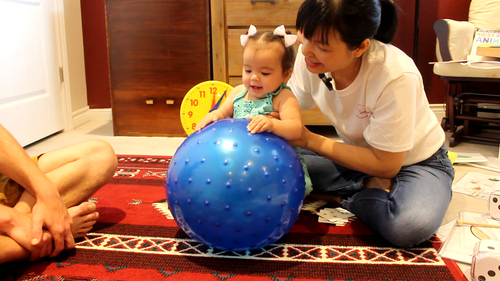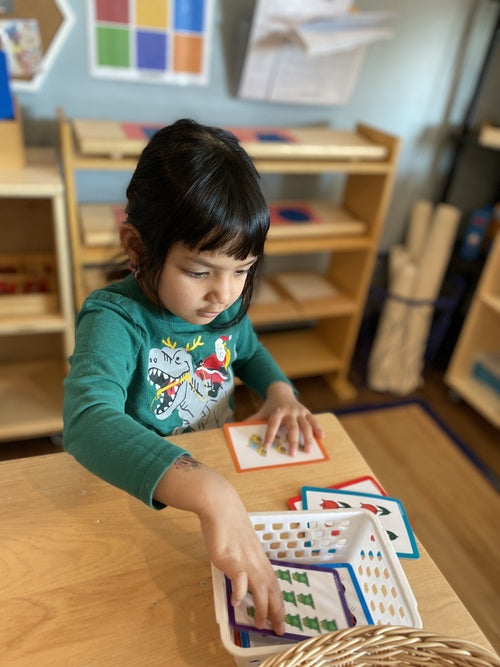Parent involvement in early childhood education is a crucial component in fostering a child's growth and development. When parents actively participate in their children's education, it leads to numerous benefits, including enhanced academic performance, improved social skills, and stronger emotional resilience. This article explores the importance of parent involvement in early childhood education and offers practical tips for parents to maximize their engagement.
The Impact of Parent Involvement in Early Childhood Education
Research consistently highlights the positive effects of parent involvement to children in early stage of their life. Children with involved parents are more likely to excel academically, develop better social skills, and have a positive attitude towards school. Here are some key areas where parent involvement makes a significant difference:
Academic Achievement
When parents engage in their child's learning process, it reinforces the importance of education. Activities such as reading together, helping with homework, and discussing school topics can improve a child's academic performance and instill a love for learning.
Social and Emotional Development
Parent involvement provides children with a sense of security and support. This emotional foundation is crucial for developing self-esteem, confidence, and social skills. Children learn to navigate social situations, manage emotions, and build relationships more effectively when their parents are actively involved.
Behavioral Benefits
Children with involved parents are less likely to exhibit behavioral problems. The guidance and discipline provided by parents help children understand expectations and develop positive behaviors both at home and in school.

Strategies for Enhancing Parent Involvement in Early Childhood Education
To maximize the benefits of parent involvement in early childhood education, parents can adopt several strategies:
Creating a Supportive Home Environment
A supportive home environment is fundamental to fostering a child's learning and development. Here are some tips for creating such an environment:
- Establish Routines: Consistent routines provide children with a sense of stability and structure. Designate specific times for educational activities, such as reading, homework, and creative play.
- Set Up a Learning Space: Create a quiet, well-lit area dedicated to studying and learning. Ensure that it is equipped with necessary educational materials and free from distractions.
- Encourage Learning Activities: Engage in activities that stimulate learning, such as educational games, puzzles, and science experiments. Encouraging curiosity and exploration helps children develop a love for learning.
Building Strong Relationships with Educators
Effective communication and collaboration with teachers are vital for supporting a child's education. Parents can build strong relationships with educators by:
- Regular Communication: Keep in touch with teachers through emails, phone calls, or school apps to stay updated on your child's progress and school activities.
- Attend Parent-Teacher Conferences: These meetings provide an opportunity to discuss your child's strengths, areas for improvement, and ways to support their learning at home.
- Volunteer at School: Participating in school events, field trips, or classroom activities allows parents to be more involved and understand the school environment better.
Encouraging Independent Learning
Promoting independent learning helps children develop self-discipline and a sense of responsibility for their education. Parents can encourage independent learning by:
- Setting Goals: Help children set realistic and achievable academic and personal goals. Celebrate their progress and achievements to motivate them further.
- Fostering Curiosity: Encourage children to explore topics that interest them. Provide resources such as books, educational videos, and online materials to support their interests.
- Teaching Problem-Solving Skills: Guide children in developing problem-solving skills by asking open-ended questions and encouraging them to think critically.

Overcoming Challenges in Single-Parent Families
While parent involvement in early childhood education is highly beneficial, single-parent families often face unique challenges that can make active participation difficult. Factors such as time constraints, work commitments, and financial pressures can create obstacles. However, there are effective strategies to overcome these challenges and ensure meaningful involvement in your child's education:
Time Management
Single parents frequently juggle multiple responsibilities, making time management essential. Prioritizing and scheduling specific times for educational activities can help. Even small, consistent efforts can make a significant impact on your child's development. Set aside dedicated time for reading, homework, and engaging in educational games or activities.
Flexibility
Look for flexible involvement opportunities that accommodate your schedule. Virtual meetings with teachers, online resources, and brief volunteer opportunities can provide ways to stay connected and involved without adding significant time burdens. Schools often offer various formats for participation to meet the needs of busy parents.
Leveraging Community Resources
Utilize community resources and support networks to enhance involvement. Local libraries, community centers, and parent support groups often provide valuable resources and programs tailored for single-parent families. These resources can offer educational materials, tutoring programs, and extracurricular activities that support your child's learning and development.
Building a Support Network
Creating a support network is crucial for single parents. This network can include family members, friends, neighbors, and other single parents who understand the challenges you face. A strong support network can provide:
- Emotional Support:Having someone to talk to and share experiences with can alleviate stress and provide encouragement.
- Practical Assistance:Support networks can offer practical help, such as babysitting, transportation, or help with school projects.
- Shared Resources:Sharing resources and information about educational opportunities and community programs can benefit both parents and children.
Seeking School Support
Don't hesitate to reach out to your child's school for support. Schools often have resources and programs designed to assist single-parent families. Communicate with teachers and school counselors about your unique situation, and they can provide guidance, resources, and accommodations to help you stay involved in your child's education.
Parent involvement in early childhood education is a powerful tool that can significantly enhance a child's academic, social, and emotional development. By creating a supportive learning environment at home, building strong relationships with educators, and encouraging independent learning, parents can play an integral role in their child's education.Even if you are single parent or not, your guidence and presence in your child’s early life is the most important part.
Understand challenges parents are facing, at Smartizen, we provide early childhood education services to support your effort in raising your child in early life. See more about our whole-brain training programs and foreign language classes here.








